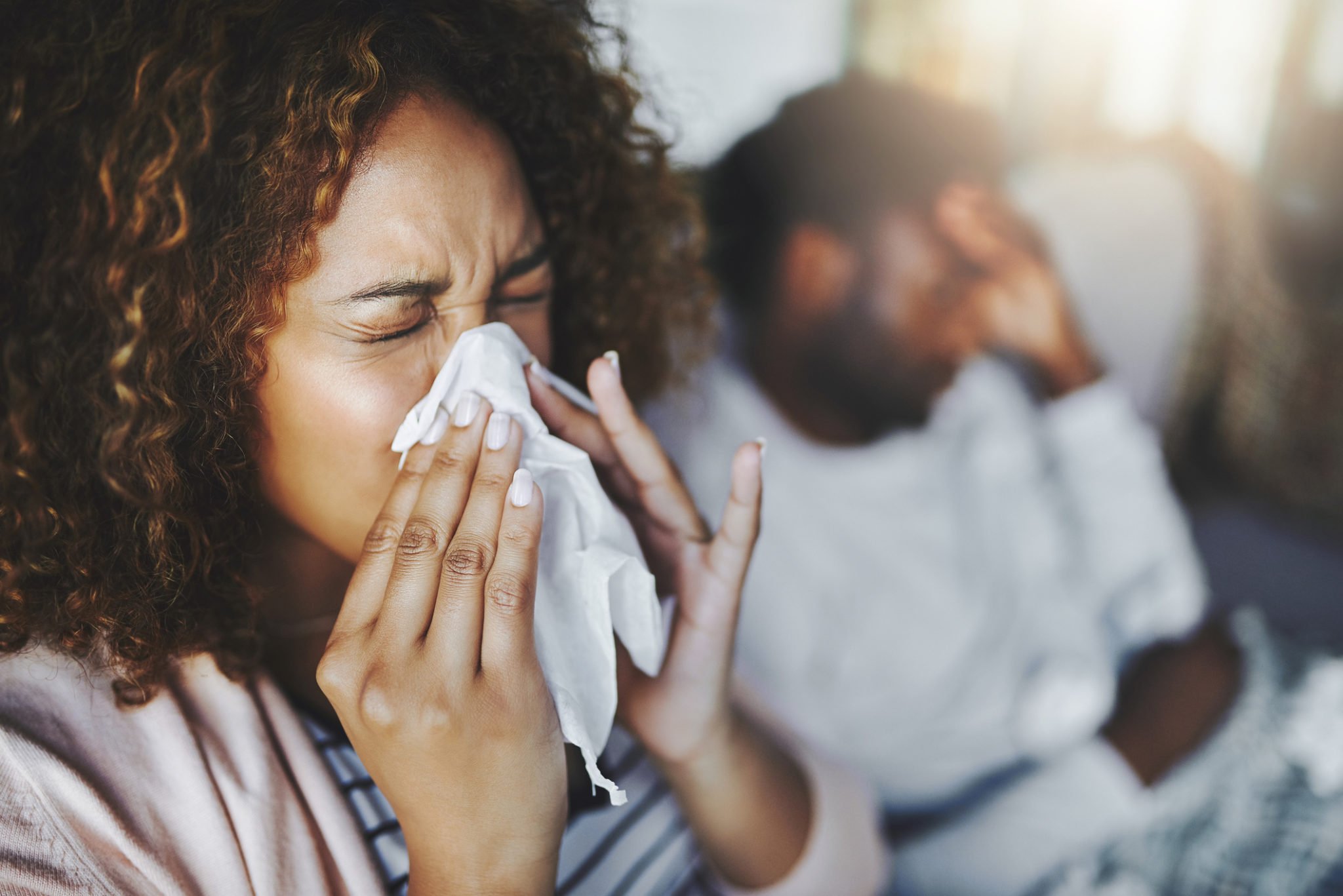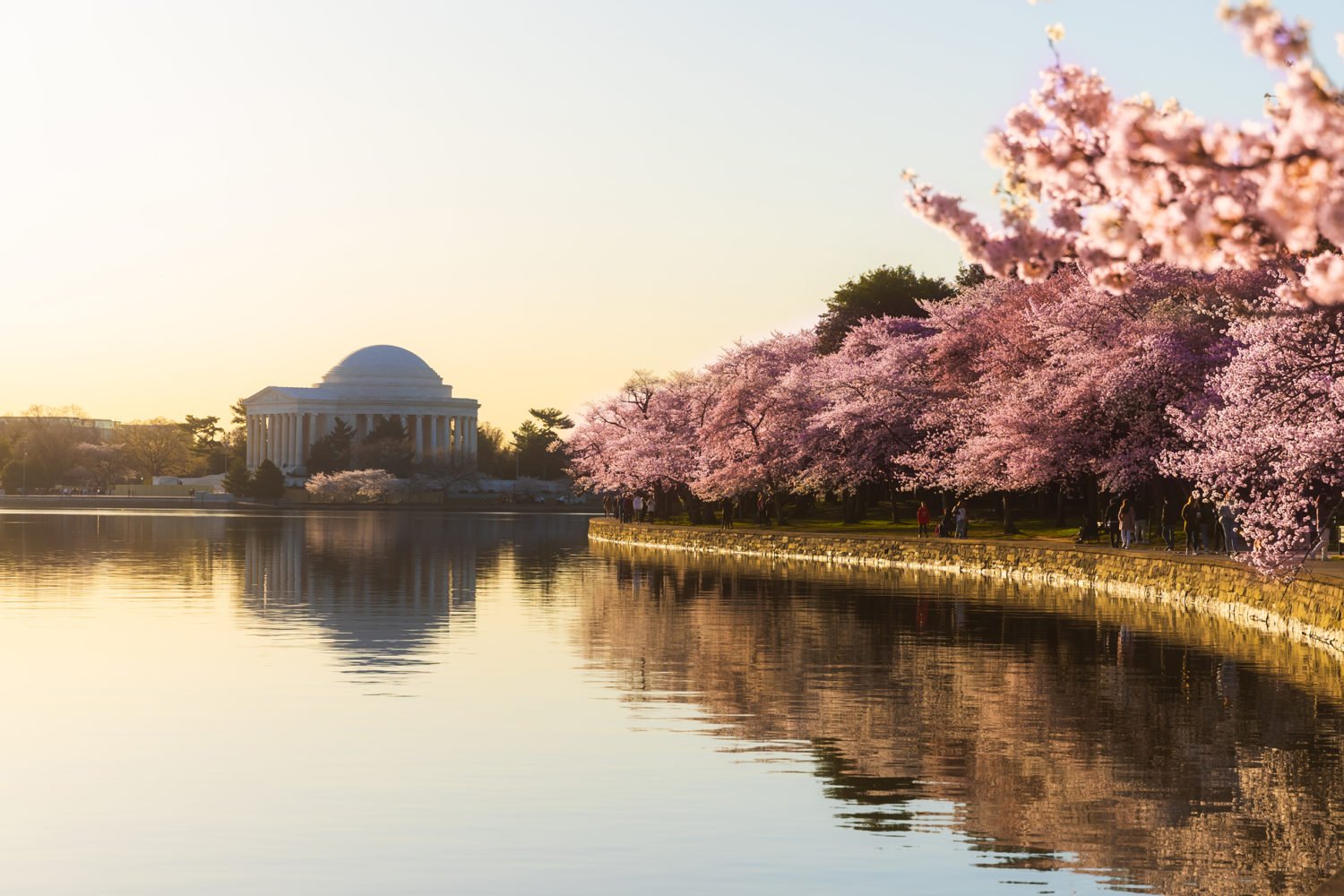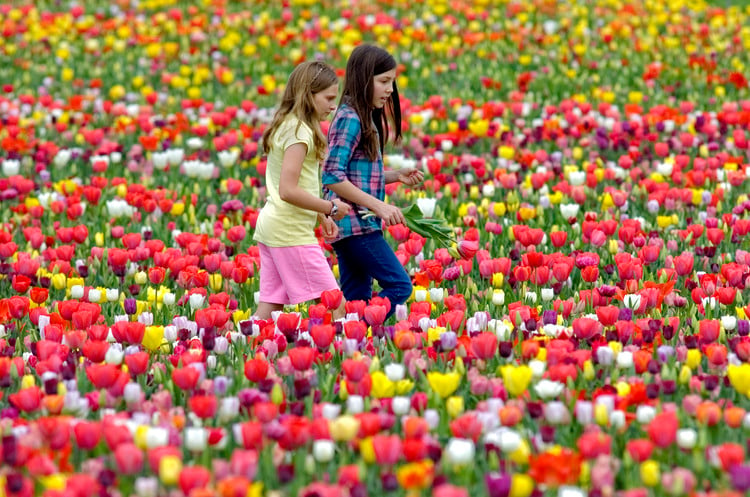It’s the season of sneezing, watery eyes, and itchy throats. Spring in DC always brings a series of allergy symptoms, but you’re not alone if this year feels especially dire. According to the Capital Weather Gang, the DC area experienced the highest daily pollen count since 2010 on April 14, and subsequent days have been punishing, too. We spoke to allergist and immunologist Anjeni Keswani, director of George Washington University’s Allergy & Sinus Center, about this year’s pollen and what you can do to find some relief.
Why are allergies so bad this year?
I think allergies are so bad this year because we had a fairly mild winter. We actually had a prolonged ragweed season last year, and then there wasn’t that much of a frost for the mold spores to die out. We saw an early tree season this year, generally because of the milder weather, and then we had a higher burden of the other allergens like molds because they never really went down in the winter.
When do allergies typically peak during this season?
We usually do see them peak in April. I think we’re in the height of it right now. Then it’ll start to come down in May because tree season is traditionally March, April, and May. This year, we saw a lot of tree pollen up at Valentine’s Day in mid-February. So, that’s one of the questions that I’m thinking about: Are we going to have an earlier end to the tree season or is it just going to stay throughout May? That’s the tough question I can’t really answer for my patients right now.
How does this allergy season compare to last year’s?
This year’s pollen season is more intense than last year’s pollen season. The counts are higher. I think also what we’re seeing is that people are out and about more this year compared to other years recently in the pandemic, and they are not masking quite as much outside. The masking did seem to help with the pollens because people weren’t breathing in as much pollen.
Typically, I tell all my patients who are allergic to tree pollen to start your medicine around Valentine’s Day in mid-February. That way, they get the medicine in their system for about two weeks before we anticipate the pollen starting. But this year by mid-February, there was tree pollen already up in the air.
Are you hearing from patients that symptoms are not just worse, but actually different?
Eye symptoms are much more prominent this year than I’ve seen in the last few years. A lot of people are having itchy, watery red eyes compared to what I’ve observed over the last few years. So nasal symptoms are still pretty consistent, but the eye symptoms are dramatically worse this year.
As we’re thinking about allergies this year, what role does climate change play?
I think climate change plays a pretty significant role as we’ve seen that the temperatures were higher this past winter. The temperatures were higher, and therefore we see that the trees bloomed earlier. Interestingly enough in the DC area, we’re very concentrated in our traffic exhaust air pollution, and so that combined with the pollens really does intensify on the airway and the allergic response. That’s part of the reason that the people who live here can suffer from worse allergies, even if their pollen counts aren’t necessarily much higher than other parts of Virginia, North Carolina, or South Carolina.
What can people do to relieve allergy symptoms?
Over-the-counter antihistamines are an option. We also think about over-the-counter nasal sprays, like Flonase, which can be very helpful for patients. One thing that I talk to patients a lot about, particularly those who are more interested in natural remedies, is a Neti Pot or a nasal rinse. People should be washing their hands, and they should change their clothes before they go to bed. At home, trying to keep windows closed can be very useful.
One of the things that we do in the office is that we offer allergy shots. We test individuals, and we create an allergy shot which essentially combines what they’re allergic to. That is to desensitize them or to make them less sensitive to the pollen allergens here. That can be really helpful year to year because they will have less of an allergic response to the pollens.



















